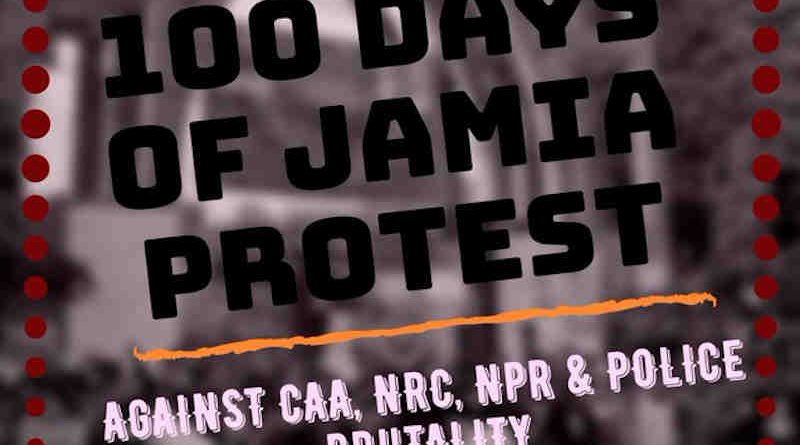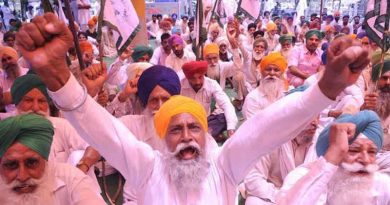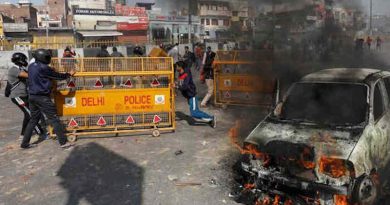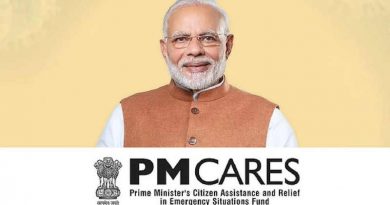India Using COVID-19 Pandemic to Violate Human Rights: Amnesty
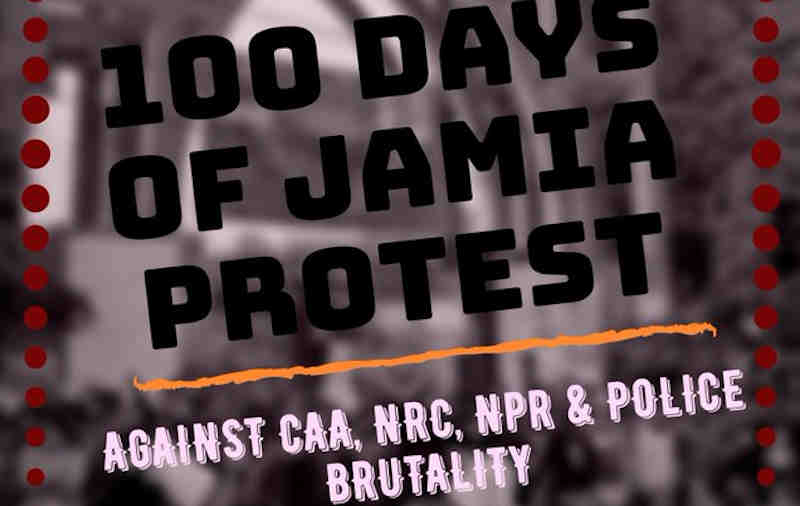
The Government of India’s ongoing crackdown on dissent and free speech is leading to the arrest of journalists, activists, lawyers, and students under repressive laws and being sent to overcrowded prisons which are potential COVID-19 hotspots. This crackdown during the pandemic puts their lives at immediate risk, said Amnesty International India.
For example, 27-year-old Safoora Zargar, a research student from Jamia Millia University was arrested on 10 April by the Delhi Police and later charged under the repressive Unlawful Activities (Prevention) Act (UAPA).
Safoora who is also three months pregnant is accused by the police of being a key ‘conspirator’ in the Delhi riots that took place in north-eastern part of the capital city in February.
Before the riots, Safoora, as part of the Jamia Coordination Committee (JCC), had been organizing peaceful protests against the Citizenship (Amendment) Act (CAA). She is currently imprisoned in Tihar jail which is one of the most overcrowded prisons in the country and has not been able to access her lawyer or meet her husband since 14 April.
[ Also Read: Religious Freedom Violations Increasing Under Modi Govt: U.S. Commission ]
According to Amnesty, Safoora’s pregnancy is a mitigating factor against her continued detention under UAPA, particularly amidst the COVID-19 pandemic.
Besides Safoora Zargar, Meeran Haider who is a member of the Jamia Coordination Committee (JCC) and Shifa-Ur-Rehman, President of the Jamia Millia Islamia Alumni Association have also been arrested under UAPA and sent to Tihar Jail.
Under UAPA, according to Amnesty, Safoora, Meeran, and Shifa-Ur- Rahman can be kept in detention without charge for up to 180 days or even more, which is far beyond international standards. It also contains no provisions for adequate pre-trial safeguards against torture and other ill-treatment.
[ Amit Shah Led Delhi Riots, Shameless Modi Silent: Says Brinda Karat ]
“The Government of India has been exceedingly intolerant towards free speech and dissent,” said Avinash Kumar, Executive Director, Amnesty International India. “While the country battles the COVID-19 pandemic, it is extremely cruel of the government to arrest and imprison a person using repressive laws just because they have been critical of the government. The government is putting their lives at grave risk.”
Amnesty says that the Central and State governments in India have routinely used repressive laws such as UAPA and sedition, to bypass human rights and stifle dissent.
In the month of April alone this year, according to Amnesty, the state has filed numerous cases under repressive laws against journalists, activists, lawyers, and students across the country. Two journalists in Jammu and Kashmir – Masrat Zahra and Gowhar Geelani were slapped with UAPA cases for social media posts and photographs.
[ Modi Govt Using Coronavirus to Eliminate Muslims: Arundhati Roy ]
Umar Khalid, a student leader has also had cases filed under UAPA for his alleged involvement in the 2020 Delhi riots. Two activists, Anand Teltumbde and Gautam Navlakha, were also arrested by the National Investigative agency under UAPA and sent to prison for their alleged involvement in the 2018 Bhima Koregaon riots.
In February this year, Amulya Leona, a 19-year-old undergraduate student of journalism was booked for sedition for shouting “Pakistan Zindabad” at a protest against the CAA. Amulya has been in the central prison in Bengaluru for more than two months now.
| Download All Issues of Covid Health Bulletin | |
| April 16-30, 2020 | May 1-15, 2020 |
In January 2020, Sharjeel Imam, an activist was arrested for sedition for his speeches against the CAA. On 29 April, the Delhi Police also filed cases under UAPA against the activist.
Earlier, on 12 December 2019, Akhil Gogoi, an activist and leader of the Krishak Mukti Sangram Samiti (KMSS), a peasant rights organization based in Assam, was arrested by the Assam Police under various sections of the UAPA. He was released on bail in March only to be arrested again by the authorities.
On 3 April, the Office of the United Nations High Commissioner for Human Rights (OHCHR) urged countries around the world in view of the pandemic to release “every person detained without sufficient legal basis, including political prisoners, and those detained for critical, dissenting views”.
It also called for the release of pregnant women, older persons, and persons with disabilities. But till now, according to Amnesty, India has not released any political dissidents. Instead, it continues to arrest those who dissent and are critical of the government using draconian laws.

